Audi A3 Sportback vs Toyota C-HR - Differences and prices compared
Compare performance (400 HP vs 223 HP), boot space and price (27000 £ vs 29100 £ ) at a glance. Find out which car is the better choice for you – Audi A3 Sportback or Toyota C-HR?
Costs and Efficiency:
Price and efficiency are key factors when choosing a car – and this is often where the real differences emerge.
Audi A3 Sportback has a barely noticeable advantage in terms of price – it starts at 27000 £ , while the Toyota C-HR costs 29100 £ . That’s a price difference of around 2134 £.
Fuel consumption also shows a difference: Toyota C-HR manages with 0.80 L and is therefore noticeable more efficient than the Audi A3 Sportback with 1.10 L. The difference is about 0.30 L per 100 km.
As for electric range, the Audi A3 Sportback performs significantly better – achieving up to 141 km, about 73 km more than the Toyota C-HR.
Engine and Performance:
Power, torque and acceleration are the classic benchmarks for car enthusiasts – and here, some clear differences start to show.
When it comes to engine power, the Audi A3 Sportback has a convincingly edge – offering 400 HP compared to 223 HP. That’s roughly 177 HP more horsepower.
In acceleration from 0 to 100 km/h, the Audi A3 Sportback is decisively quicker – completing the sprint in 3.80 s, while the Toyota C-HR takes 7.40 s. That’s about 3.60 s faster.
In terms of top speed, the Audi A3 Sportback performs evident better – reaching 237 km/h, while the Toyota C-HR tops out at 180 km/h. The difference is around 57 km/h.
Space and Everyday Use:
Cabin size, boot volume and payload all play a role in everyday practicality. Here, comfort and flexibility make the difference.
Both vehicles offer seating for 5 people.
In curb weight, Audi A3 Sportback is somewhat lighter – 1360 kg compared to 1505 kg. The difference is around 145 kg.
In terms of boot space, the Toyota C-HR offers slightly more room – 447 L compared to 380 L. That’s a difference of about 67 L.
In maximum load capacity, the Toyota C-HR performs minimal better – up to 1155 L, which is about 55 L more than the Audi A3 Sportback.
When it comes to payload, Audi A3 Sportback a bit takes the win – 480 kg compared to 425 kg. That’s a difference of about 55 kg.
Who wins the race in the data check?
The Audi A3 Sportback is clearly superior overall in the objective data comparison.
This result only shows which model scores more points on paper – not which of the two cars feels right for you.
Costs and Consumption
View detailed analysis
Engine and Performance
View detailed analysis
Dimensions and Body
View detailed analysis
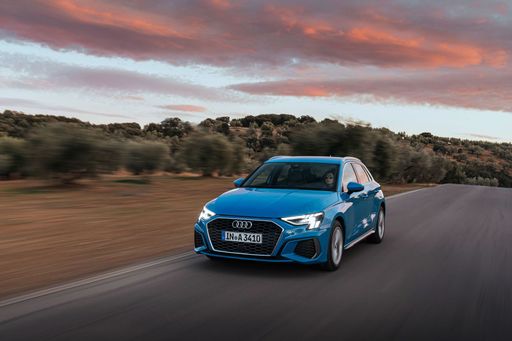
Audi A3 Sportback
Audi A3 Sportback
The Audi A3 Sportback wraps premium materials and crisp German design into a practical hatchback package that makes daily driving feel smart rather than showy. It’s nimble in the city, composed on longer trips, and carries just enough swagger to satisfy buyers who want quality without shouting about it.
details
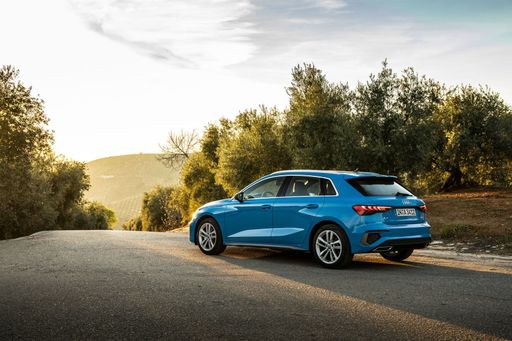
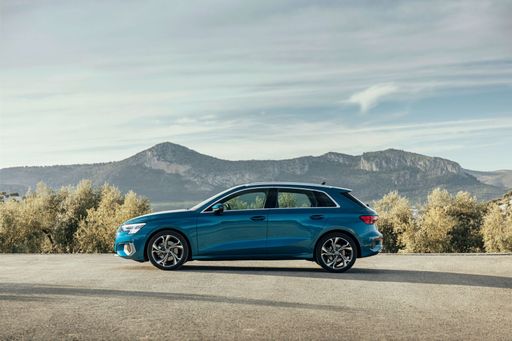
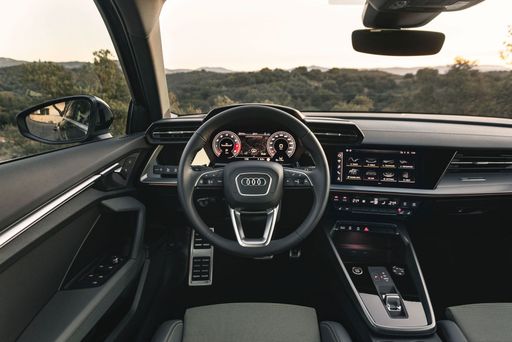
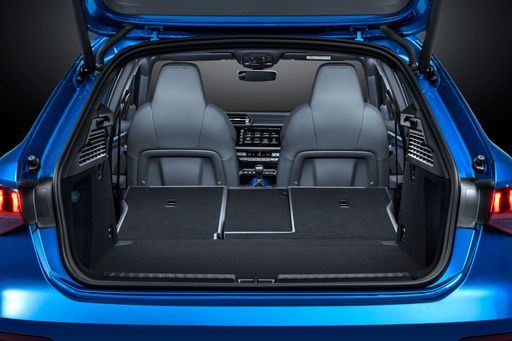
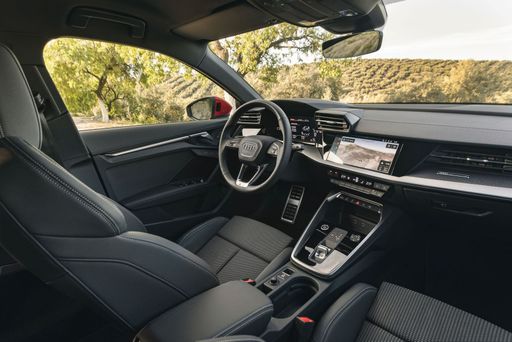
Toyota C-HR
The Toyota C-HR cuts a striking figure with its angular styling and coupe-like profile, so you’ll never go unnoticed in the supermarket car park. It balances everyday practicality with a nimble, city-friendly personality, making routine commutes feel a touch more fun without asking for forgiveness.
details




Costs and Consumption |
|
|---|---|
|
Price
27000 - 56600 £
|
Price
29100 - 42800 £
|
|
Consumption L/100km
1.1 - 9.3 L
|
Consumption L/100km
0.8 - 5.1 L
|
|
Consumption kWh/100km
-
|
Consumption kWh/100km
-
|
|
Electric Range
134 - 141 km
|
Electric Range
68 km
|
|
Battery Capacity
19.70 kWh
|
Battery Capacity
-
|
|
co2
25 - 211 g/km
|
co2
17 - 115 g/km
|
|
Fuel tank capacity
40 L
|
Fuel tank capacity
43 L
|
Dimensions and Body |
|
|---|---|
|
Body Type
Hatchback
|
Body Type
SUV
|
|
Seats
5
|
Seats
5
|
|
Doors
5
|
Doors
5
|
|
Curb weight
1360 - 1685 kg
|
Curb weight
1505 - 1755 kg
|
|
Trunk capacity
280 - 380 L
|
Trunk capacity
350 - 447 L
|
|
Length
4352 - 4353 mm
|
Length
4362 mm
|
|
Width
1816 - 1851 mm
|
Width
1832 mm
|
|
Height
1441 - 1470 mm
|
Height
1558 - 1564 mm
|
|
Max trunk capacity
1100 L
|
Max trunk capacity
1076 - 1155 L
|
|
Payload
410 - 480 kg
|
Payload
375 - 425 kg
|
Engine and Performance |
|
|---|---|
|
Engine Type
Petrol, Petrol MHEV, Diesel, Plugin Hybrid
|
Engine Type
Full Hybrid, Plugin Hybrid
|
|
Transmission
Manuel, Automatic
|
Transmission
Automatic
|
|
Transmission Detail
Manual Gearbox, Dual-Clutch Automatic
|
Transmission Detail
CVT
|
|
Drive Type
Front-Wheel Drive, All-Wheel Drive
|
Drive Type
Front-Wheel Drive, All-Wheel Drive
|
|
Power HP
116 - 400 HP
|
Power HP
140 - 223 HP
|
|
Acceleration 0-100km/h
3.8 - 10.1 s
|
Acceleration 0-100km/h
7.4 - 9.9 s
|
|
Max Speed
225 - 237 km/h
|
Max Speed
175 - 180 km/h
|
|
Torque
220 - 500 Nm
|
Torque
-
|
|
Number of Cylinders
4 - 5
|
Number of Cylinders
4
|
|
Power kW
85 - 294 kW
|
Power kW
103 - 164 kW
|
|
Engine capacity
1498 - 2480 cm3
|
Engine capacity
1798 - 1987 cm3
|
General |
|
|---|---|
|
Model Year
2025
|
Model Year
2024 - 2025
|
|
CO2 Efficiency Class
D, F, E, G, B
|
CO2 Efficiency Class
C, B
|
|
Brand
Audi
|
Brand
Toyota
|
What drive types are available for the Audi A3 Sportback?
The Audi A3 Sportback is offered with Front-Wheel Drive or All-Wheel Drive.
